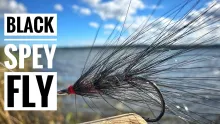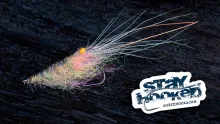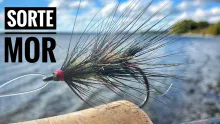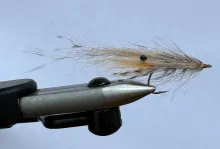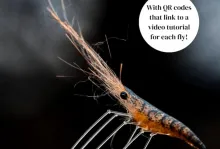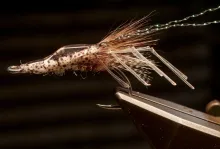An all time classic which here is tied for sea trout in ocean and stream.
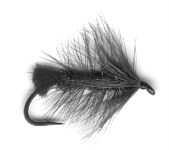 The Red Tag is a classic that can be used everywhere. There probably isn't one single way to tie this pattern. I tie a palmered version that has produced fine sea trout in the salt.
The Red Tag is a classic that can be used everywhere. There probably isn't one single way to tie this pattern. I tie a palmered version that has produced fine sea trout in the salt.
| Hook | Tiemco TMC 700 #4 |
| Thread | Black Monochord |
| Tail and underbody | A small length of very red wool yarn |
| Hackle | Chesnut brown saddle hackle |
| Rib (optional) | Copper wire or twisted tying thread |
| Body | Peacock herl |
| Head | Tying thread |
Tying the Red Tag is very easy. Use the 'herl rope' technique and a rib for a more durable fly:
- Tie in the thread close to the hook bend and run it forwards to just behind the hook eye
- Tie in the yarn on top of the shank
- Tie down the yarn in the full length of the hook shank to form a smooth underbody
- If you want a rib from tying thread, make a thread loop and pull it aside
- Tie in the hackle tip first shiny side forwards at the hook bend
- If you want a copper wire rib, tie in the ribbing material under the hook shank at the bend
- Tie in 5-10 peacock herls at the hook bend
- Twist the herl and the tying thread together to form a 'herl rope'
- Wind the herl rope forwards to form a fairly thick body
- Tie down and cut surplus one eye width behind the hook eye
- Wind the hackle over the body and give several turns just in front of the body to form a front hackle
- Tie down and cut surplus
- Wind the optional ribbing in the opposite direcion of the hackle and tie down
- Form a small head, whip finish and varnish
- Cut the tail very short and tease out with a bodkin
- Log in to post comments

